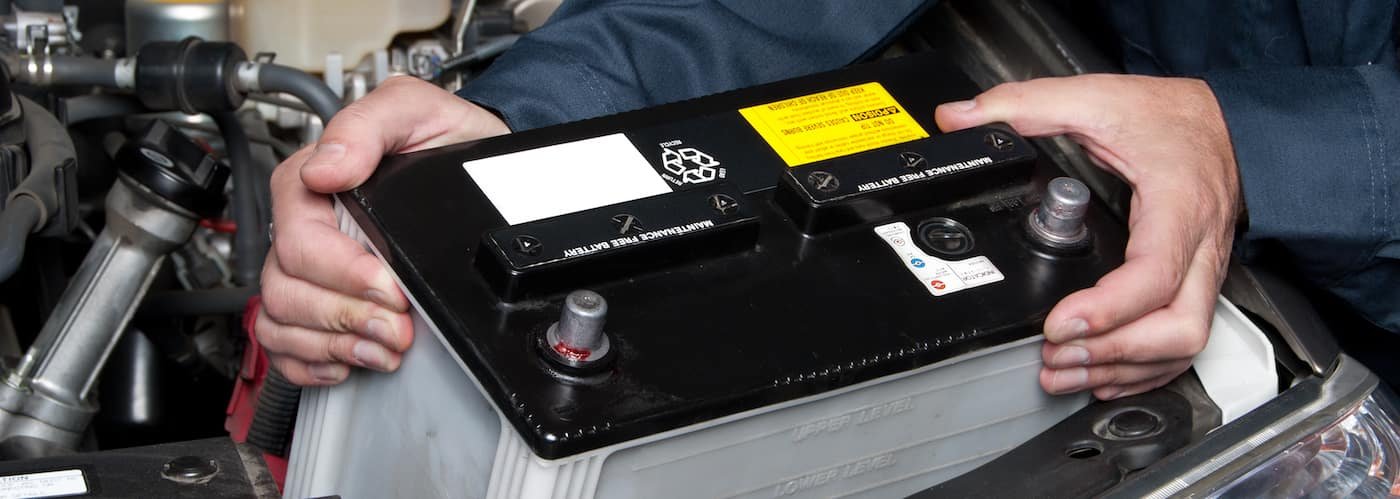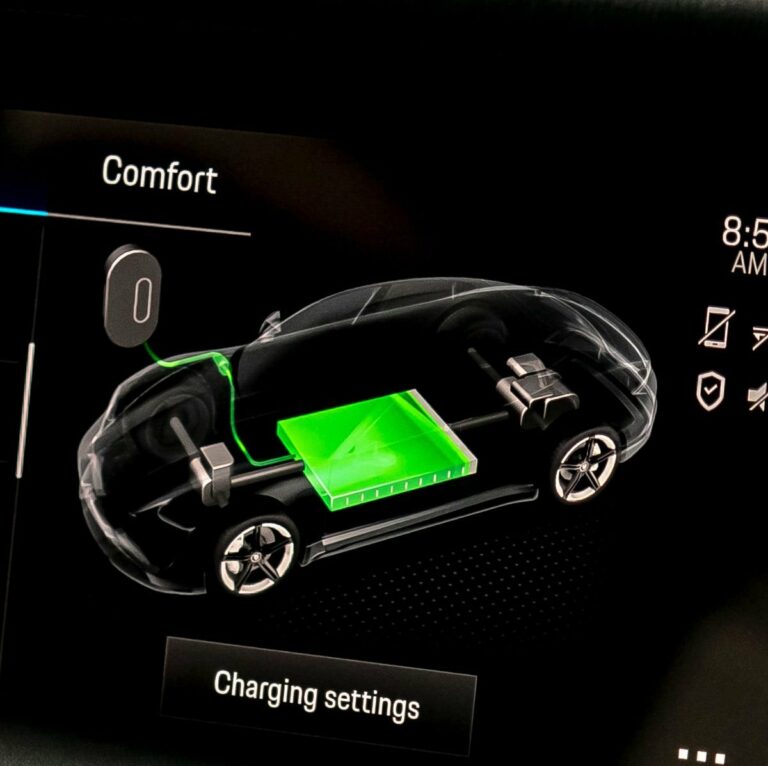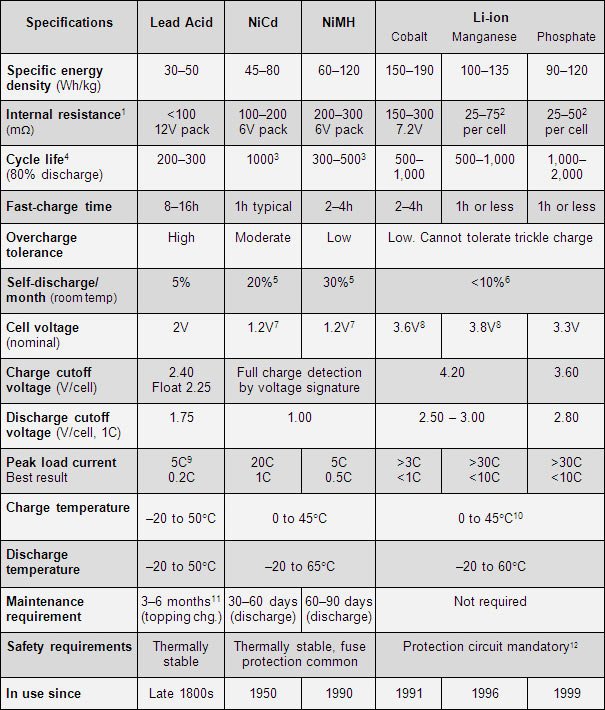How Often Should a Car Battery Be Replaced?Find Out Now!
How often should a car battery be replaced? It’s a common question that many people find themselves pondering. Well, the answer isn’t as straightforward as you might think. It depends on various factors such as the quality of the battery, your driving habits, and the climate you live in.
But fear not! In this article, we will unravel the mystery behind car battery replacement and provide you with some useful tips to extend its lifespan. So, let’s dive in and shed some light on this important aspect of car maintenance.
How Often Should a Car Battery Be Replaced?
Car batteries play a crucial role in the overall functionality and performance of our vehicles. They provide the electrical power needed to start the engine, operate various systems, and keep everything running smoothly. However, like any other component, car batteries have a limited lifespan. Eventually, they will begin to lose their effectiveness and require replacement. In this article, we will explore the topic of how often car batteries should be replaced, considering various factors that influence their longevity.
1. Understanding Car Batteries
a. Composition and Working Principle
b. Common Types of Car Batteries
To fully grasp the factors affecting the lifespan of car batteries, it’s important to understand their composition and working principle. Most car batteries are lead-acid batteries, which consist of lead plates immersed in an electrolyte solution. When the battery is charged, a chemical reaction occurs between the lead plates and the electrolyte, producing electrical energy. This process is reversible, allowing the battery to be recharged.
There are various types of car batteries available, including conventional flooded batteries, enhanced flooded batteries, absorbed glass mat (AGM) batteries, and lithium-ion batteries. Each type has its own advantages and disadvantages, impacting their lifespan and maintenance requirements.
2. Factors Affecting Car Battery Lifespan
a. Climate and Temperature
b. Driving Habits and Usage Patterns
c. Battery Quality and Maintenance
The lifespan of a car battery can vary greatly depending on several factors. One of the most significant factors is climate and temperature. Extreme temperatures, whether extremely hot or cold, can have a detrimental effect on battery performance. High temperatures can cause the battery to overheat, accelerate the evaporation of the electrolyte, and lead to internal corrosion. On the other hand, cold temperatures reduce the battery’s ability to provide sufficient power during startup.
Driving habits and usage patterns also influence the lifespan of a car battery. Frequent short trips, stop-and-go driving, and extended periods of inactivity can negatively impact the battery’s charge level. Additionally, accessories that draw power from the battery, such as entertainment systems and aftermarket electronics, can contribute to a faster battery drain.
Battery quality and maintenance play a crucial role in determining how long a car battery will last. Investing in a high-quality battery from a reputable brand can ensure better performance and durability. Regular maintenance, including cleaning the battery terminals, checking the electrolyte levels (for flooded batteries), and testing the battery’s overall health, can help prolong its lifespan.
3. Signs of a Failing Car Battery
a. Diminished Cranking Power
b. Slow Engine Start
c. Electrical Issues
d. Old Age
Recognizing the signs of a failing car battery is essential for avoiding unexpected breakdowns. Some common signs include diminished cranking power, where the engine struggles to start, or a slower than usual engine start. Electrical issues, such as flickering lights or malfunctioning accessories, can also indicate a battery problem. Additionally, if the battery is more than three to five years old, it may be nearing the end of its lifespan.
4. Average Car Battery Lifespan
a. General Guidelines
b. Climate Considerations
While the lifespan of a car battery can vary, there are general guidelines to consider. On average, most car batteries last between three to five years. However, factors such as climate and usage patterns can significantly affect this estimate. In colder climates, where batteries experience more stress due to cold startups, their lifespan may be shorter. Conversely, in moderate climates, batteries tend to last longer.
5. Maintaining and Extending Battery Life
a. Regular Inspections and Maintenance
b. Avoiding Battery Drain
c. Providing Adequate Charge
Proper maintenance and care can help extend the life of a car battery. Regularly inspecting the battery for signs of corrosion or damage, cleaning the terminals, and ensuring proper cable connections are crucial. Avoiding battery drain by turning off electrical accessories when the engine is not running and minimizing short trips can also help preserve battery life. If the battery is not being used for an extended period, using a battery maintainer or trickle charger can provide a constant, low-level charge and prevent self-discharge.
6. When to Replace the Car Battery
a. Proactive Replacement
b. Reactive Replacement
Instead of waiting for a total battery failure, it is often recommended to proactively replace the car battery before it causes any issues. This preventative approach helps avoid unexpected breakdowns and ensures a reliable starting power. As a general rule of thumb, replacing the battery every four to five years, regardless of any visible signs of failure, can help maintain optimal performance. However, reactive replacement is also common when the battery shows clear signs of malfunction.
7. Professional Battery Testing and Replacement
a. Battery Testing Procedures
b. DIY vs. Professional Replacement
To accurately assess the health of a car battery, professional testing procedures can be conducted. These tests measure the battery’s capacity, charge retention, and overall performance. Some common testing methods include a load test and a voltage test. Load testing involves applying a high load to the battery and observing its voltage drop, while voltage testing measures the battery’s open-circuit voltage. Based on the test results, professionals can determine whether the battery requires replacement or not.
While some car owners prefer to replace the battery themselves, it is recommended to seek professional assistance. Professional technicians can ensure proper installation, handle the safe disposal of the old battery, and provide expert guidance based on your specific vehicle and battery requirements.
8. Eco-Friendly Battery Disposal
a. Environmental Impact
b. Proper Disposal Methods
Car batteries contain hazardous materials, including lead and sulfuric acid, which can have severe environmental consequences if not disposed of properly. When it comes to replacing a car battery, it is crucial to follow proper disposal methods. Many auto parts stores, repair shops, and recycling centers accept old batteries and ensure their safe recycling. By disposing of batteries in an environmentally responsible way, we can minimize the negative impact on our ecosystem.
9. Battery Maintenance Tips for Longevity
a. Keep the Battery Clean
b. Check Electrolyte Levels (for flooded batteries)
c. Use Battery Insulation Kits (for extreme temperatures)
d. Perform Regular Load Tests
To maximize the lifespan of a car battery, the following maintenance tips can be helpful. Keeping the battery clean, free from dirt and corrosion, ensures optimal electrical conductivity. For flooded batteries, checking and maintaining proper electrolyte levels is important. In extreme temperature conditions, using battery insulation kits can help protect the battery from temperature-related damage. Lastly, performing regular load tests can help identify any potential issues and ensure the battery’s overall health.
10. Conclusion
Car batteries are essential components that require regular maintenance and eventual replacement. While the average lifespan of a car battery is between three to five years, several factors can influence the actual duration. Climate, driving habits, battery quality, and maintenance practices all play a role. By understanding the signs of a failing battery and adopting proper maintenance techniques, car owners can ensure optimal battery performance and avoid unexpected breakdowns. Regular inspections, proactive replacement, and professional assistance when needed are key to a healthy and long-lasting car battery. So, take care of your battery and enjoy a trouble-free driving experience.
When Should You Replace Your Vehicle’s Battery?
Faqs for How Often Should a Car Battery Be Replaced:
Several indicators suggest a car battery is reaching the end of its lifespan. These include slow engine crank, frequent jump-starts needed, a battery warning light on the dashboard, corroded terminals, and a battery that is more than 3 to 5 years old. If you experience any of these signs, it is advisable to have your battery tested by a professional to determine if it needs to be replaced.
To maximize the lifespan of your car battery, you should follow a few maintenance practices. Regularly inspect the battery terminals for corrosion and clean them if necessary. Make sure all electrical components, such as lights and accessories, are turned off when the car is not in use. Avoid using electronic devices while the engine is off, as it can drain the battery. Additionally, keeping your car in a garage or shaded area can help protect the battery from extreme temperatures.
While it is possible to replace a car battery yourself, it is recommended to have it done by a professional, especially if you are not familiar with the process. Car batteries contain hazardous materials and must be disposed of properly. A professional technician can ensure the replacement is done correctly and safely.
If a failing car battery is not replaced, it can lead to various issues. The most common consequence is being stranded with a vehicle that won’t start. Additionally, a weak battery can put additional strain on the alternator, which may result in costly repairs. It is best to address battery issues promptly to avoid inconvenience and potential damage to other components.
Final Thoughts
In conclusion, the frequency of car battery replacement depends on various factors such as climate, driving habits, and maintenance. Generally, car batteries need to be replaced every three to five years. However, extreme temperatures can shorten their lifespan, requiring more frequent replacements. It is crucial to monitor your battery’s performance regularly, paying attention to signs of weakness like slow cranking or dim headlights. Additionally, proper maintenance, such as keeping terminals clean and ensuring a secure connection, can help extend the battery’s life. Overall, understanding how often a car battery should be replaced is essential for maintaining the optimal performance of your vehicle.



